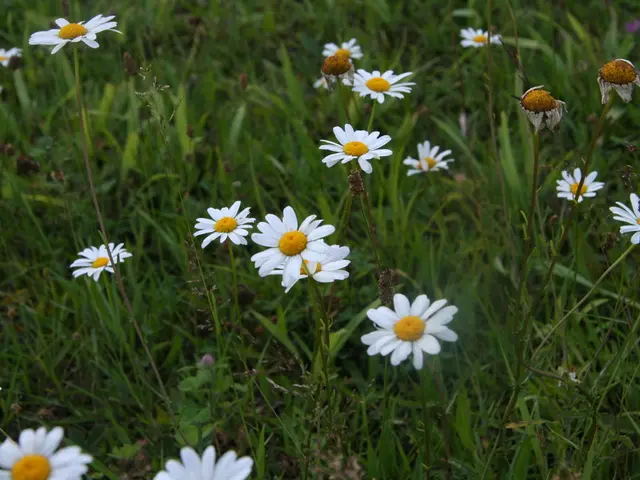Gardening Guide for Begonias: Soil Requirements Revealed
In the quest for a thriving begonia garden, the right soil mix plays a crucial role. To ensure optimal pH, drainage, and nutrients, follow these guidelines for an ideal soil mix for begonias.
### 1. Optimal Soil pH
Begonias generally thrive in a slightly acidic soil environment. The ideal pH range for most begonias is around 5.2 to 6.0, but certain varieties like the Coralline begonia prefer a more acidic pH of around 4.5 to 5.0. To adjust pH, if soil is too acidic, materials like lime or dolomitic lime can be used to raise pH moderately. However, avoid excessive use to prevent alkalinity stress. Using rainwater for watering can help maintain this slightly acidic pH because tap water is often more alkaline.
### 2. Soil Texture and Drainage
Begonias require well-draining soil to avoid root rot caused by soggy, waterlogged conditions. A chunky, airy mix is recommended to ensure oxygen reaches the roots while retaining moisture for the root ball. A mix containing organic matter such as coconut coir or coconut chips is beneficial as it provides moisture retention plus excellent aeration. Add components like perlite, pumice, or orchid bark to increase drainage and prevent compacting. A drainage layer at the bottom of the pot (about 1 cm thick) may also help excess water escape.
### 3. Nutrient Content
Begonias prefer nutrient-rich but balanced soil. Incorporate organic compost or a mild balanced fertilizer at the start of the growing season to support accelerated growth phases. Avoid excessive fertilization to prevent nutrient burn; one feeding per season with organic compost or diluted fertilizer is sufficient. The organic material in the mix not only supplies nutrients but also improves soil structure and microbial life.
### Sample soil mix composition for begonias:
| Component | Purpose | Approximate Proportion | |-------------------|---------------------------------|----------------------------| | Coconut coir/chips | Moisture retention & aeration | 40% | | Perlite or pumice | Drainage | 20-30% | | Organic compost | Nutrients | 20-30% | | Orchid bark or coarse sand | Chunky texture and aeration | 10-20% |
### Additional care notes:
- Water carefully to keep the soil moist but not soggy, typically watering once a week or every 4-10 days depending on conditions. - Avoid spraying water on leaves or flowers to prevent damage from excess humidity.
Following these steps will create a well-draining, nutrient-rich, and slightly acidic soil mix ideal for healthy begonia growth. When planting begonias, it is important to loosen the soil in the planting area and dig a hole that is slightly wider and deeper than the root ball. Begonias are susceptible to powdery mildew, so it is important to increase airflow around your begonias to help prevent powdery mildew outbreaks.
Proper drainage is crucial for begonias to prevent root and stem rot. Signs of mould growth, a foul odour, or excessive moisture may indicate that the begonia's soil needs attention. Begonias are heavy feeders and require regular fertilization with a balanced slow-release granular fertilizer or a liquid fertilizer once a month during the growing season. When choosing a container, make sure it has good drainage holes to promote proper drainage.
Adding home-and-garden activities such as gardening can enhance the lifestyle of those who love to nurture begonias. By following the guidelines for an ideal soil mix, individuals can create a thriving home-and-garden environment for their begonia plants, ensuring that they have well-draining, nutrient-rich, and slightly acidic soil. This mixture, which may include components like coconut coir, perlite, organic compost, orchid bark, and other drainage materials, will promote healthy growth and prevent issues such as root rot or mold growth.








